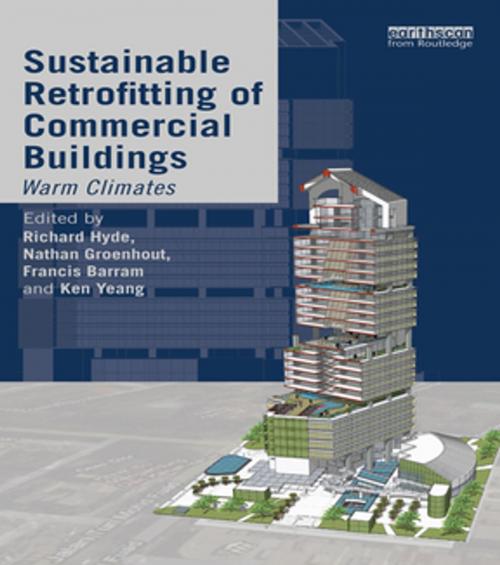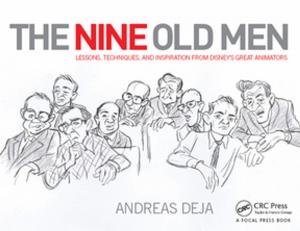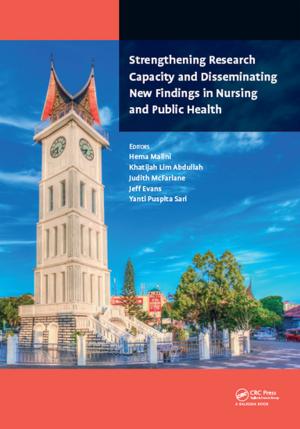Sustainable Retrofitting of Commercial Buildings
Warm Climates
Nonfiction, Science & Nature, Science, Biological Sciences, Environmental Science| Author: | Richard Hyde, Nathan Groenhout, Francis Barram, Ken Yeang | ISBN: | 9781317605478 |
| Publisher: | CRC Press | Publication: | January 28, 2015 |
| Imprint: | Routledge | Language: | English |
| Author: | Richard Hyde, Nathan Groenhout, Francis Barram, Ken Yeang |
| ISBN: | 9781317605478 |
| Publisher: | CRC Press |
| Publication: | January 28, 2015 |
| Imprint: | Routledge |
| Language: | English |
Despite recent improvements in energy efficiency being made in new build, it is important that the existing commercial building sector also take action to meet emission reduction targets. The objectives and challenges of such action will reduce the risk of the sector becoming obsolete due to high energy use and poor environmental performance.
This book presents a theory-based, practice-support methodology to deal with sustainable retrofitting opportunities for existing commercial buildings in warm climates using bioclimatic design as the basis. The book has four main parts, focusing on eco-design and renovation, bioclimatic retrofitting, technological and behavioural change and case studies of retrofitting exemplars. In the first part, the context of climate change effects on design and renovation at the city scale is discussed. The second part looks at bioclimatic retrofitting as a 'design guide' for existing buildings, highlighting the significance of architectural design and engineering systems for energy performance. The technological and behavioural contexts of the existing building sector – policies, modelling, monitoring and trend analysis in respect to energy and environmental performance – are covered in part three. The final part gives some case studies showing the effectiveness of strategies suggested for effective environmental performance. This book is a must-have guide for all involved in the design and engineering of retrofitting projects in warm climates.
Despite recent improvements in energy efficiency being made in new build, it is important that the existing commercial building sector also take action to meet emission reduction targets. The objectives and challenges of such action will reduce the risk of the sector becoming obsolete due to high energy use and poor environmental performance.
This book presents a theory-based, practice-support methodology to deal with sustainable retrofitting opportunities for existing commercial buildings in warm climates using bioclimatic design as the basis. The book has four main parts, focusing on eco-design and renovation, bioclimatic retrofitting, technological and behavioural change and case studies of retrofitting exemplars. In the first part, the context of climate change effects on design and renovation at the city scale is discussed. The second part looks at bioclimatic retrofitting as a 'design guide' for existing buildings, highlighting the significance of architectural design and engineering systems for energy performance. The technological and behavioural contexts of the existing building sector – policies, modelling, monitoring and trend analysis in respect to energy and environmental performance – are covered in part three. The final part gives some case studies showing the effectiveness of strategies suggested for effective environmental performance. This book is a must-have guide for all involved in the design and engineering of retrofitting projects in warm climates.















